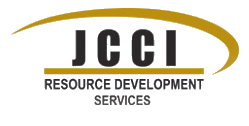PROGRAM SOLICITATION: PD 19-601
Application Deadline: NSF has announced multiple deadlines beginning December 2019 and February 2020. Review the full announcement for details on applicable deadlines.
Summary
NSF has announced a new version of its IUSE: EHR grant. The new announcement features two different grant tracks with three levels of grant competition in each track. The tracks and accompanying levels have different deadlines, with annual deadlines noted after the initial 2019 and 2020 deadlines. NSF expects that all grantees receiving awards under these new tracks and levels will increase the knowledge about effective STEM education. Successful applicants will demonstrate how their projects will have a widespread impact in STEM education in the areas of improved diversity among both students and faculty and professional development that meets the changing needs of students and promotes collaboration in research and development. NSF also states in the grant announcement that it welcomes proposals that also align with efforts of the NSF INCLUDES grant.
Tracks/Levels and Funding Amounts
NSF’s IUSE: EHR grant offers funding under two main categories: the Engaged Student Learning track and the Institutional and Community Transformation track. Three different “levels” are available for applicants in each track.
Under the Engaged Student Learning (ESL) track, NSF will award between $300,000 and $2 million over three to five years, depending on the level. Institutional and Community Transformation (ITC) grants will range from $150,000 for capacity building efforts to $3 million for multi-institutional collaborations, again, depending on the level.
Engaged Student Learning (ESL) Track
NSF offers funding under the ESL track to support projects that promote student engagement and learning, either directly or indirectly, in STEM. NSF will consider proposals that cover a wide range of research and development activities that are both evidence-based and knowledge-generating. Among other activities, NSF lists the following items as potential project concentrations:
- Innovative pedagogy and multi- and inter-disciplinary approaches,
- Assessment efforts that track learning outcomes and the effectiveness of teaching methods,
- Dissemination of information and resources to aid in STEM teaching and learning,
- Professional development for faculty, and
- Restructured learning environments.
The three ESL funding levels should reflect the scale (number of students, faculty, departments, institutions, or other groups involved) and scope (range of project components involved) of proposed projects as well as the organizational capacity to conduct the proposed study.
ESL Level 1 Projects
ESL Level 1 grantees can receive up to $300,000 over a maximum of three years. Level 1 projects should focus on early-stage or exploratory research projects or small-scale projects aimed at adapting teaching methods and incorporating novel environments. Under the Level 1 category, NSF will consider proposals from a single institution and projects may focus on small numbers of faculty members in a single discipline or across multiple disciplines. NSF will also consider small projects at this level that involve partnerships. The initial Level 1 deadlines are February 4, 2020, and August 4, 2020. Annual deadlines will be the first Tuesday in February and August moving forward.
ESL Level 2 Projects
The award range for ESL Level 2 project is slightly higher, at $300,001 to $600,000 over a maximum grant period of three years. NSF expects Level 2 projects to have a larger scale and scope than an ESL Level 1 project. For instance, a Level 2 project would support department-wide changes, interdisciplinary or multi-disciplinary collaborations, or multi-institutional partnerships such as partnerships between institutions of higher education (IHE) or between IHEs and industry or community partners. The initial deadline for ESL Level 2 proposal submission is December 4, 2019. After this initial deadline, applicants may submit ESL Level 2 proposals by the first Tuesday in December each year.
ESL Level 3 Projects
Projects that aim to benefit large numbers of students and have a far-reaching impact on large numbers of faulty and/or a large-scale multi-institutional impact are appropriate at this level of funding. In this category, NSF will award between $600,001 and $2 million for projects with a maximum duration of five years. Proposals at this level should include detailed research plans and large-scale evaluation plans. NSF will consider proposals from single institutions, but anticipates that the scale and scope will likely result in applications at this level that involve multiple institutions. The initial Level 3 deadline is December 4, 2019, with annual proposals accepted yearly by the first Tuesday in December afterwards.
Institutional and Community Transformation (ITC) Track
NSF wants to fund projects under the ITC track that focus on systemic change that have a measurable impact at departmental, institutional, or multi-institutional levels or across larger communities of STEM educators and/or educational researchers. ITC track proposals should include at least one theory of change that guides the project. NSF lists a range of approaches that ITC track proposals might take, including the following items:
- Including evidence-based teaching practices in high-enrollment, lower-division courses,
- Developing teaching evaluation rubrics (disciplinary or interdisciplinary) with a common research-based framework,
- Re-envisioning the learning environment and support networks that best aid faculty and students, and
- Identifying common methods of supporting students from underrepresented groups to be successful in STEM studies.
ITC Capacity-Building Projects
NSF will consider both individual and collaborative projects under this category. Awards can be up to $150,000 for a single applicant or up to $300,000 for a collaborative effort; projects have a maximum duration of two years. This category provides funding for applicants to review previous institutional efforts and gauge institutional needs, develop buy-in across institutional sectors, build relevant partnerships, determine which theories of change are applicable to future work, and articulate plans to transform the institution and/or STEM community. Ideally, capacity-building projects will lead to a subsequent ITC Level 1 or Level 2 proposal. The initial deadlines for capacity-building proposal submission are February 4, 2020, and August 4, 2020. Applicants may submit proposals on an annual basis afterwards with a deadline of the first Tuesday in February and August.
ICT Level 1 Projects
Proposals at this level should involve early exploration or small- to mid-range projects that build on previous institutional work. Grantees can receive up to $300,000 over a maximum grant period of three years. The initial deadlines for Level 1 submissions are February 4, 2020, and August 4, 2020. Annual deadlines after this time frame will be the first Tuesday in February and August.
ICT Level 2 Projects
At this level, NSF expects grantees to carry out projects that include strong research plans with significant research questions or a large-scale evaluation and assessment of results and impact. NSF will fund between $300,001 and $2 million for projects from a single institution or up to $3 million for collaborative projects that involve two or more institutions or from research centers. Projects under this category have a maximum duration of five years. The initial deadline for Level 2 submissions is December 4, 2019. Annual deadlines afterwards will be the first Tuesday in December.
Application Guidelines
Applicants should refer to NSF-published guidelines for instructions on preparing proposals. Pertinent guidelines for submission of a proposal for IUSE: EHR grant funding are included in the NSF’s Proposal & Award Policies and Procedures Guide.

